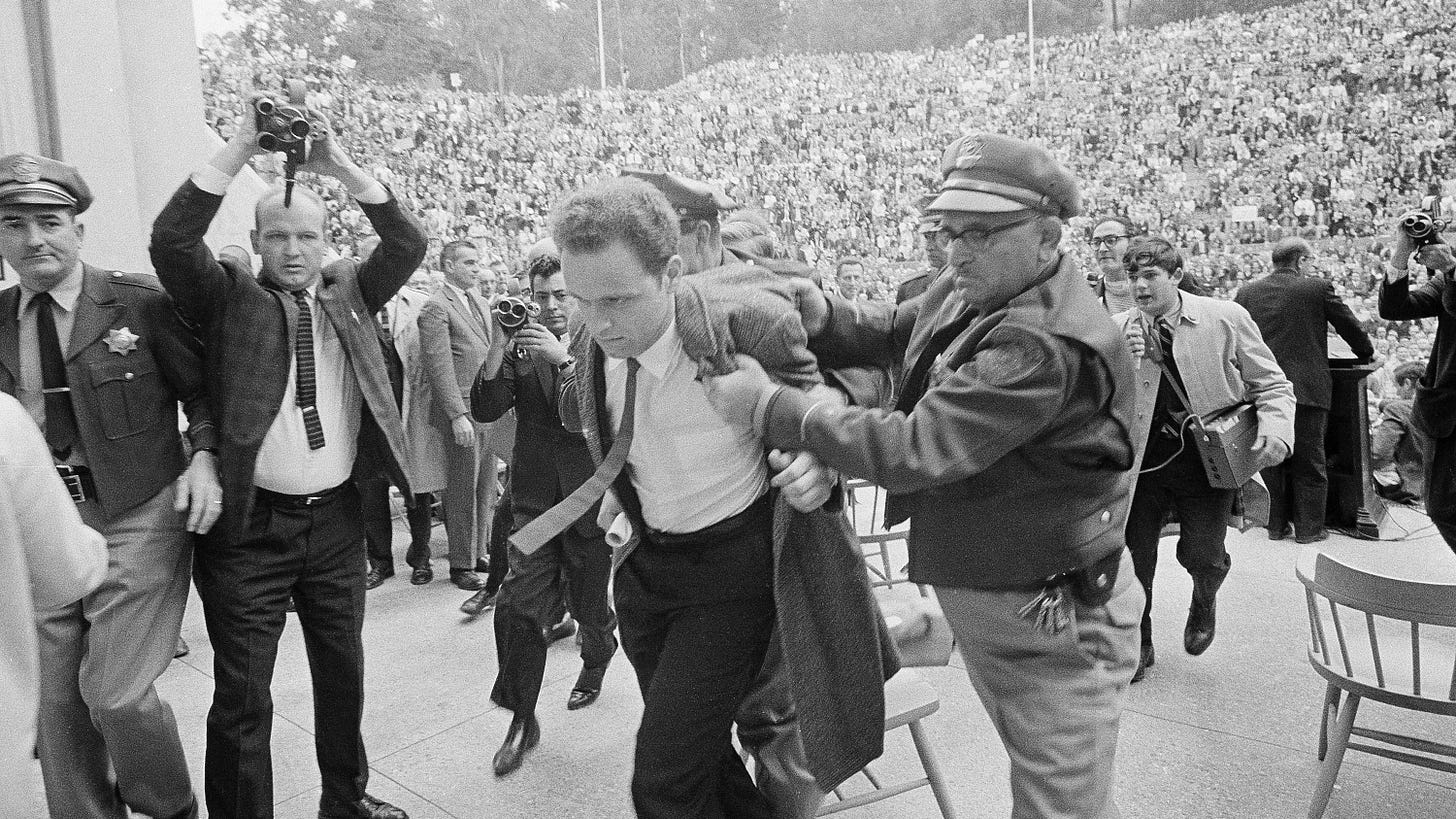The Free Speech Movement
The Free Speech Movement (FSM) at the University of California, Berkeley, in 1964, was a pivotal moment in the 1960s countercultural and civil rights movements.
The Free Speech Movement marked a significant shift in American socio-political dynamics, emphasizing the importance of civil liberties, freedom of speech, and the power of student activism. The FSM's influence on the emerging hippie culture was profound, intertwining with the broader countercultural movement that sought to challenge and redefine societal norms.
Origins of the Free Speech Movement
The FSM originated in the fall of 1964 as a response to the university administration's decision to restrict political activities and ban fundraising for civil rights causes on campus. This decision was seen as a direct infringement on students' rights to free speech and political engagement. The movement was initially sparked by the arrest of Jack Weinberg, a former student and civil rights activist, on October 1, 1964, for setting up a table of political literature on campus grounds.
Key Figures and Events
Mario Savio: One of the most prominent leaders of the FSM, Savio became the symbol of the movement, known for his eloquent speeches that called for freedom of speech and academic freedom.
Sit-ins and Demonstrations: The movement saw a series of sit-ins, demonstrations, and teach-ins that drew thousands of participants, culminating in the occupation of the university's Sproul Hall in December 1964.
Negotiations and Resolution: The movement ended with the university administration conceding to some of the FSM's demands, including the right to political activity on campus grounds.
Influence on Hippie Culture
Values and Ideals: The FSM's emphasis on individual freedoms, civil rights, and anti-authoritarianism resonated with the values that would come to define hippie culture. The movement showcased the power of peaceful protest and civil disobedience, strategies that would be adopted by the hippie movement in its opposition to the Vietnam War and its support for civil rights and environmental causes.
Political Activism: The FSM inspired a generation of young people to become politically active and to challenge societal norms. It demonstrated that student activism could effect change, a lesson that influenced the broader countercultural movements of the 1960s and 1970s.
Community and Solidarity: The FSM fostered a sense of community and solidarity among participants, aspects that would become central to hippie culture. The movement's communal decision-making processes and emphasis on collective action influenced the organizational structure of hippie communes and collectives.
Spread of Countercultural Ideas: Berkeley became a hub for the countercultural movement, with the FSM acting as a catalyst for the spread of countercultural ideas across the United States and beyond. The movement contributed to the establishment of Berkeley as a center of political activism, intellectual discourse, and cultural innovation, attracting individuals who would become central figures in the development of hippie culture.
Legacy
The Free Speech Movement had a lasting impact on American society, contributing to significant changes in university governance, the rights of students, and the nature of political activism on college campuses. It also played a crucial role in shaping the ideology and tactics of the hippie movement and the wider countercultural revolution of the 1960s and 1970s. The FSM's legacy is a testament to the power of collective action and the enduring importance of free speech and civil liberties.

